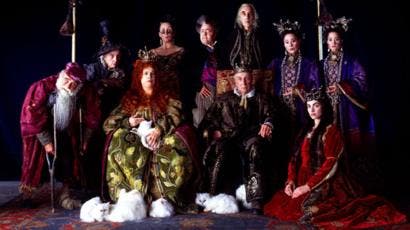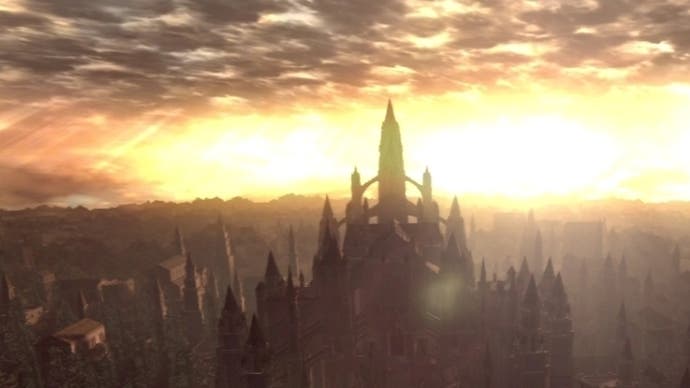Someone should make a game about: Gormenghast
Free to Flay.
Somewhere along the way, my copy of Gormenghast got rained on. I wonder if a roof leaked in some previous house, or a chimney made a nearby wall a bit damp. Whatever. I went for it a few minutes ago and the book's pages have the wavering crispness of the once-wet. The cover is thickened around the edges, and the first few chapters have some kind of dark speckling on them advancing from one spread to the next. Some of the print is smeary.
It's perfect, really. A perfectly damaged book. If you'd asked me what the Gormenghast books were about when I first read them in my late teens, I would have said they were about a very dangerous dishwasher. I was a dishwasher at the time, and took a certain kindred thrill in Steerpike, who moves from the kitchens of Gormenghast to...well, that would be saying too much. Now, in my forties, I would say they're about aging, about a great mass of aging and forgetting and crumbling and ruination. Castle Gormenghast is ancient and tumbledown. I bet its own books have the wavering crispness of the once-wet. I bet there are dark speckled forms growing throughout the chambers.
I read once that Mervyn Peake's trilogy of books was not meant to be a trilogy - and was not really meant to be about a single place. I gather it was conceived as being the life story of Titus Groan, who is present but very young for most of what survives of the Gormenghast books. There are more than three of these books, but only three are canon, and I think I remember reading that actually only the first two have arrived in the manner that Peake intended. And so Titus Groan's story doesn't always have that much Titus Groan in it.

What it has is Castle Gormenghast, where Titus is born. Gormenghast is an enormous rambling place and seems all but deserted. A few people have remained, though, and they're lost in the grip of rituals - huge, complicated rituals which have long ago lost their sense of meaning or their context. The rulers of Gormenghast are its slaves, really: they are stuck doing stupid things all day for no reason except half-remembered history.
There are two things I love about this. The first is that, as I remember it, Gormenghast is both fiercely detailed and completely amorphous. The sense I got when I first finished it for the first time was that there were brightly seen spots in this world, akin to the single-page illustrations that Peake made a career of, while the connective tissue was shapeless and boundless - there was room in this castle for Peake to invent whatever he needed whenever he needed it.
I love that sense of a place that will simply not come into focus, a place which is text, really, and text with promising gaps. But the other thing about Gormenghast that I love comes into focus when you compare it to that other big fantasy series that Gormenghast often shares a shelf with.
In the Lord of the Rings, history is really meaningful to everyone. It guides them and warns them and judges them and comforts them and reveals their true natures. In Gormenghast, it's completely the opposite. Titus is born into a world that has already been strangled by a history that no-one really understands, so it's all just empty ritual that guides and warns and judges and comforts nobody. This huge castle that has limits that are so hard to see is bound up with all this busywork to do that has no end, no reward - and no revelation.
Lord of the Rings has had a lot to do with the shaping of games. That's great. I love the books and I love hearing about lore in games from other players even if I skim through it myself for the most part. But I do wonder what fantasy games would look like if more of them were distrustful or order and history and ritual - if they made a mocking problem of the past as Peake does to such beautifully rotten ends.

